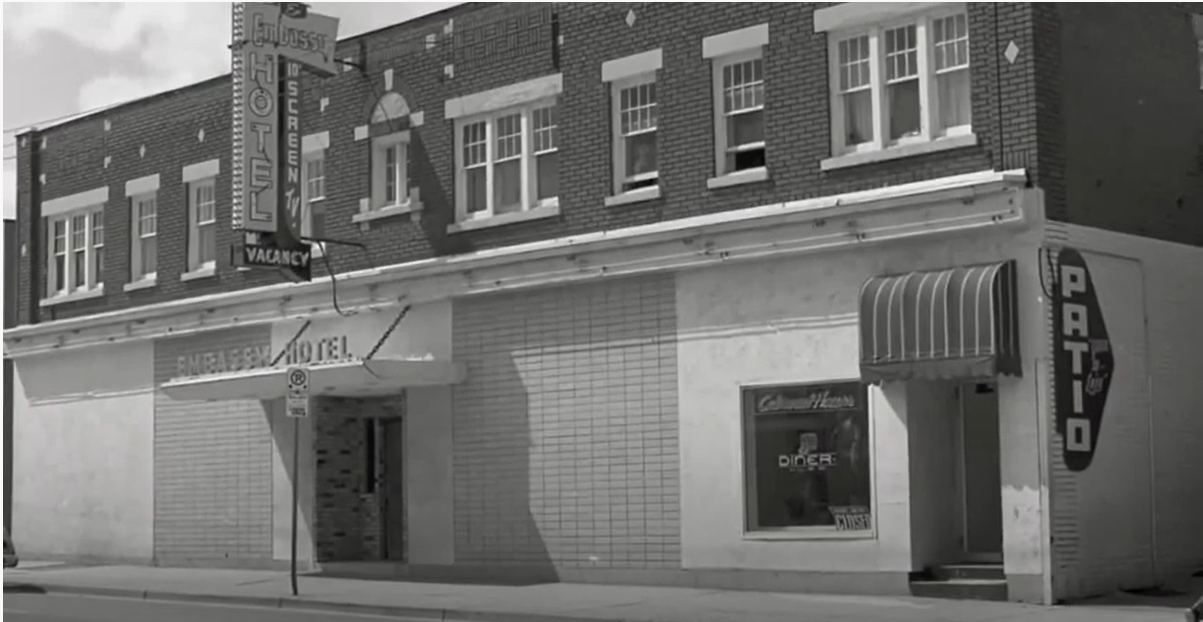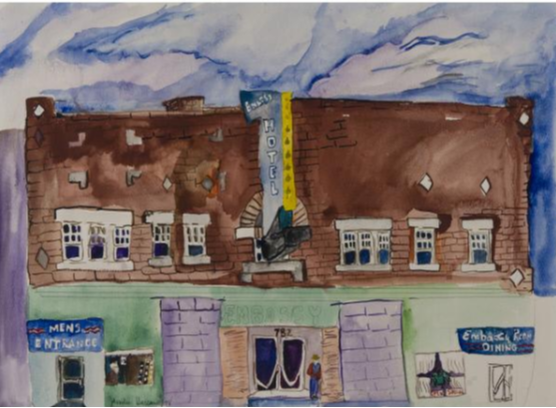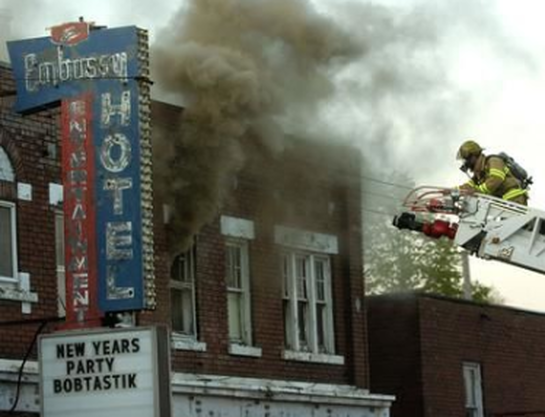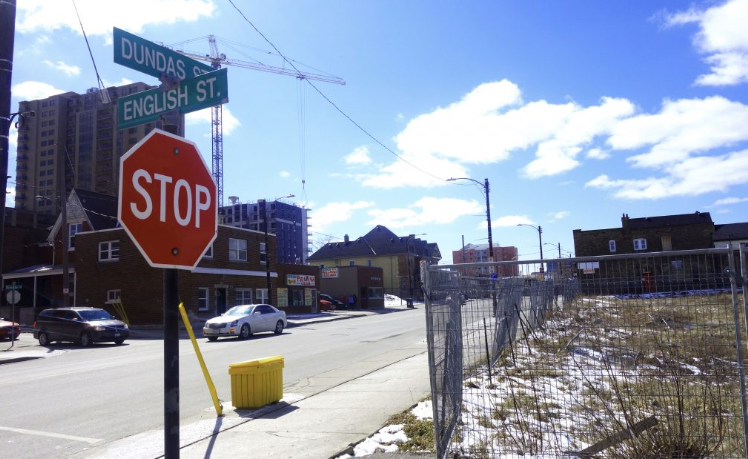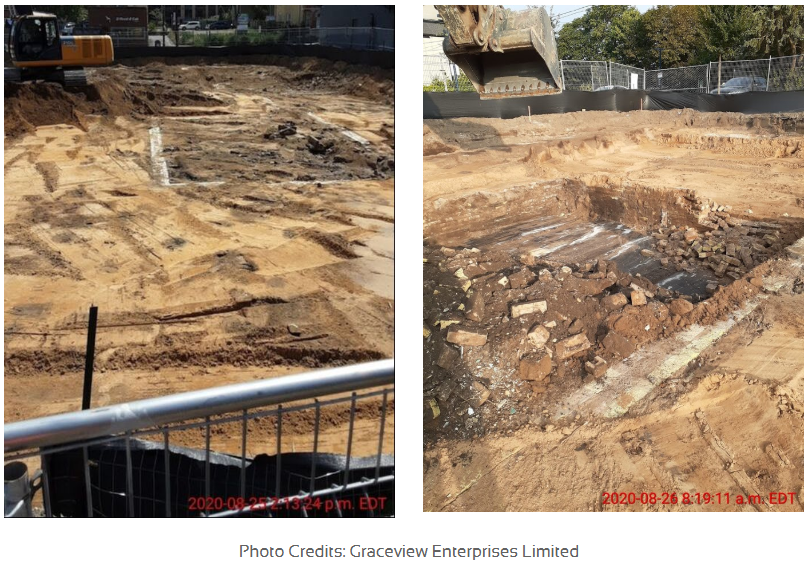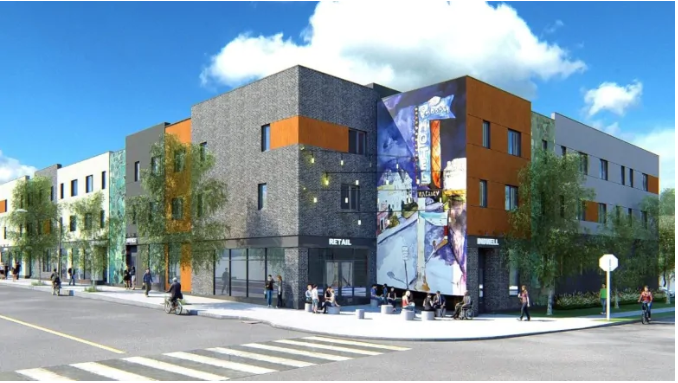EMBASSY HOTEL HISTORY
|
|
Historical information drawn from an essay by the late Melanie Townsend written for the catalogue of the Museum London exhibit, "The Embassy Cultural House 1983-1990 . The catalogue was published by Museum London in 2012.
Alex Hassan first opened the Sunnyside Hotel at 732 Dundas Street in 1936. By the 1970s, with city revitalization plans focused on suburban development, London's Old East Village had become run-down, and so too had the family's real estate holdings on Dundas Street. Alex's daughter, Helen and her husband Egon Haller, took over the hotel and restaurant operation in 1977 and set about renovating, restoring and returning some of the former dignity to the old family hotel. Before long they also began to initiate cultural activities, providing space for the occasional art exhibition, and inviting musicians to perform in the hotel's bar. Later Helen's sister Jamelie Hassan helped to introduce a network of artists to the site, who themselves were looking for a unique place to showcase their work. There have been other such places in London. Throughout the 1960s, the York Hotel had been the gathering place for artists, musicians and writers to socialize and perform. But by 1970 the York Hotel went in a different direction and the arts and cultural community moved on and founded the Forest City Gallery in 1973. By the late 1970s the Forest City Gallery had evolved into a more formal operation accountable to its donors such as the Ontario Arts Council and Canada Council for the Arts. A number of the Forest City Gallery members joined Jamelie Hassan, artist Ron Benner and jazz musician Eric Stach to start something new that could be more than an art gallery, a project that also fed the desire to be culturally and politically engaged, and that embraced cross-disciplinary and cross-cultural practices in all forms (visual art, installation, performance, film, poetry, music), and to be unapologetically political in the process. What resulted was a social experiment of sorts, one that paired a hotel and restaurant with creative practice and social justice. The Embassy Cultural House became a place to hang out with friends, a place to eat, discuss, and sometimes disagree. It was a hotel, a bar and a restaurant that united like-minded people in creative activities and engaged a community and a neighbourhood in a way that had never been seen before. There were people there by design, and there by accident. There were artists and poets, activists and theorists, filmmakers and musicians. There were residents and patrons and people from the neighbourhood. The individuals who comprised the artist board, and who participated in program planning and delivery, each brought their own connections to the collective, bringing the work of international artists and filmmakers to audiences in London. The end result of these activities, the purposeful and the happenstance, created something that was for a time truly interdisciplinary: the kind of place that invited people to engage with their community and the world. The music that had been a part of the Embassy Hotel since 1977 when the Hallers purchased the business, continued to hum along throughout the days of the Cultural House and would persist until the business was sold in 2001. When the artist board of the Embassy Cultural House disbanded in 1990, Helen's son, Tyson Haller, continued to initiate the occasional art exhibition, but efforts focused on the development of the hotel as a venue for bands. Through the 1990s the Embassy became widely known as a venue for music, and performers of every stripe: those who went onto make names for themselves and others who didn't. In 2009, the hotel shut down to make way for a 150 unit condo project, but two months after closing a suspicious fire gutted the hotel, and it was demolished. The condo project also faced a financial collapse and for ten years the site was an eyesore and abandoned lot in London's Old East Village. The old hotel vacant lot has been given a new life with the recent announcement that it will become a new affordable housing project with the ground floor as a commercial space . In 2021, Indwell, a Hamilton-based agency devoted to affordable housing, will open "Embassy Commons". The name a tribute the Embassy Hotel's landmark status and local history. |
